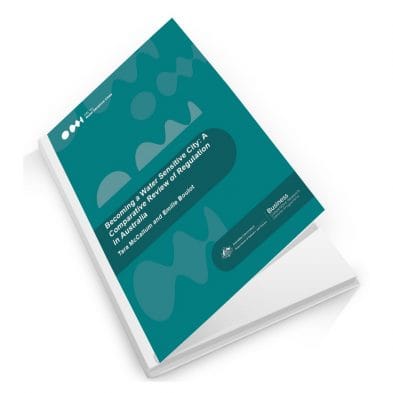New publication: Becoming a Water Sensitive City: A comparative review of Regulation in Australia.
 While urban water management practices have been generally successful across Australia, growing population and urbanisation pressures have exposed flaws in regulatory frameworks that make innovative change difficult.
While urban water management practices have been generally successful across Australia, growing population and urbanisation pressures have exposed flaws in regulatory frameworks that make innovative change difficult.
In a new report, Becoming a Water Sensitive City: A Comparative Review of Regulation in Australia, authors Tara McCallum and Emille Boulot discuss regulatory frameworks in Perth, Brisbane and Melbourne and suggest positive steps that could be taken to reform the urban water sector to help make our cities more sustainable, resilient, productive and liveable.
The researchers from the Faculty of Law at Monash University are part of the team in the CRCWSC project Better Regulatory Frameworks for Water Sensitive Cities (Project A3.2), which has a key outcome of identifying gaps, barriers and overlaps in government legislation relating to alternative water sources and water sensitive urban design projects.
“In all three cities the current regulatory frameworks, supply options and institutional arrangements have been shaped in response to a conventional model of urban water management and service delivery,” the authors said.
“Yet these very frameworks and institutional arrangements may now be impeding innovation.”
The research follows on from stocktakes of urban water management legislation in Queensland, Western Australia and Victoria.
Click here to view the report.